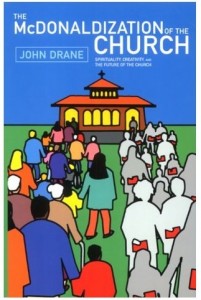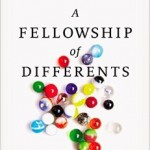 Slow Church started as a hunch. It started, for me, when I was researching the Slow Food Movement for a book I was writing about gluttony. (Of the seven deadly sins, gluttony is the one most likely to actually kill me.) There was no flash of light, no catch of breath or buckled knees. It just simply occurred to me one afternoon that the values Slow Food brought to growing, harvesting, processing, and eating food – values like justice, diversity, seasonality, terroir (more about that in a future post), pleasure, good company, and the central place of the Table in community life – were many of the same values I thought should characterize life in the Christian community.
Slow Church started as a hunch. It started, for me, when I was researching the Slow Food Movement for a book I was writing about gluttony. (Of the seven deadly sins, gluttony is the one most likely to actually kill me.) There was no flash of light, no catch of breath or buckled knees. It just simply occurred to me one afternoon that the values Slow Food brought to growing, harvesting, processing, and eating food – values like justice, diversity, seasonality, terroir (more about that in a future post), pleasure, good company, and the central place of the Table in community life – were many of the same values I thought should characterize life in the Christian community.
The language of Slow Church was relatively new – I found a half-dozen blog posts in English using the same terminology – but I knew the concepts behind it were not. As it turns out, they had always been embedded in the books of many of my favorite writers: G.K. Chesterton and C.S. Lewis, Thomas Merton and Dorothy Day, Vanier, Bonhoeffer, Yoder, Ellen F. Davis, Norman Wirzba, Wes Jackson, and Wendell Berry. Some of the most fun I’ve had working with Chris on the book – and now the blog – has been to rediscover these writers through the vernacular of Slow Church.
Writing the book has also led to the discovery of new favorite writers and thinkers. Chris is helping me see the thread of Slow Church that runs through the work of Fathers and Mothers of the early church. I’ve also become deeply indebted to the work of John Drane, co-chair of the Mission Theology Advisory Group. His book The McDonaldization of the Church: Consumer Culture and the Church’s Future has been “a can opener” book for me, to borrow a phrase; it changes things. What Drane does is to take sociologist George Ritzer’s concept of “McDonaldization” – which Ritzer describes as “the process by which the principles of the fast-food restaurant are coming to dominate more and more sectors of American society as well as the rest of the world” – and use it as a starting point to explore how the Western church is functioning in the early 21st century. The McDonaldization of the Church is an incisive critique of the Church, of course, but it also lays out a loving, optimistic, and useful vision of the way forward.
This passage in particular has stuck with me for days:
The issue of power and control is at the heart of all the other factors that are at work in a McDonaldized style of being. Numbers become all-important to church leaders, especially in the American context where churches are self-consciously competing with one another for market share, because they endow clergy with status both in the local situation and also in the wider denominational contexts. An over-emphasis on “sound” theology is a manifestation of the same thing. It doesn’t really matter here whether “soundness” is defined by reference to a conservative or a more liberal theology – either way, it is about having control of spiritual processes, often backed up by putting questionable people through training programs to re-educate them and get the “right” result. Even good practices like setting goals for the church can easily become a subtle form of control, by programming ourselves to accept certain specified results, and thereby not allowing space for something quite different.
This is a major challenge for all of us – myself included. It seems to be a natural human inclination to suppose that, if other people are to achieve personal maturity, meaningful spirituality, integrated growth and so on, that means they must end up being like we are. We too easily forget that a central element of the Christian faith is that God has created people in all their diversity – and that Jesus made weakness and vulnerability, not power and control, key characteristics for those who would be his disciples. The various themes to which Ritzer draws attention are all ways in which our culture believes it can measure “success,” but in the context of Christian spirituality that raises a further question about how we define success, for it has to be obvious that on these definitions Jesus could certainly not be considered a “successful” person…
Chris and I are such passionate readers that we will inevitably use this blog to recommend books we are encountering on our Slow Church journey. But we love getting recommendations even more than we like giving them. You can leave them in the comments box, send them to us through Twitter or Facebook, and, as always, you can drop us an e-mail. Thanks for coming on this journey with us. What great books have you read lately? How do you see them relating to Slow Church?











